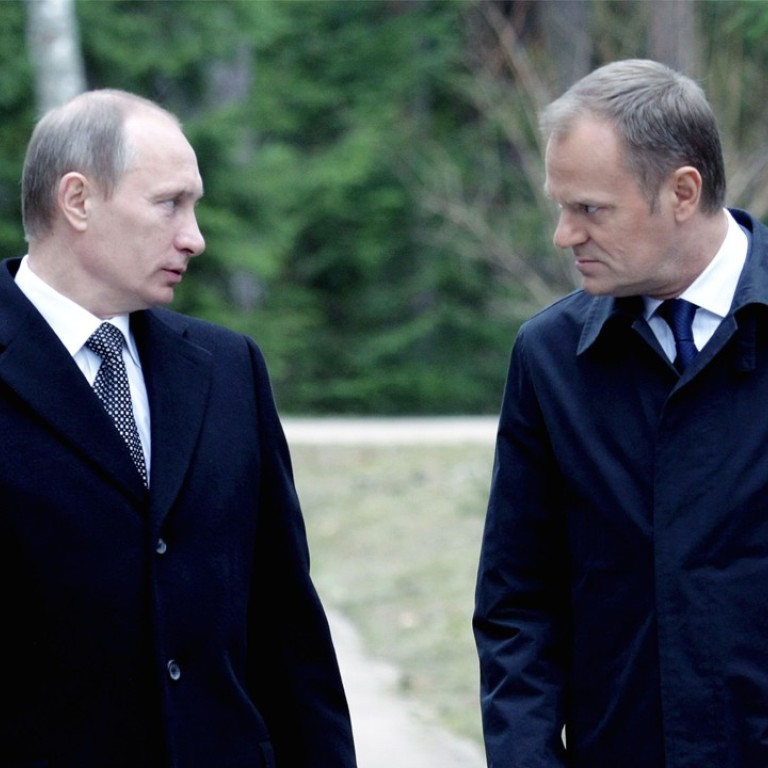
More than 130 Russian diplomats expelled from 20 countries, including US, as fallout from ex-spy poisoning continues
European Council President Donald Tusk said that 14 European Union countries will expel Russia diplomats as well
The total number of Russian diplomats expelled from foreign countries rose to 134 on Monday as the United States and several European countries rallied behind Britain following the poisoning of an ex-spy in England.
US President Donald Trump ordered 60 Russian diplomats to leave the country, saying it believed them to be spies, and also closed Russia’s consulate in Seattle, senior administration officials said on Monday.
That was the biggest expulsion - but certainly not the only one, with Germany, France and Poland leading the way in the EU with four expulsions each, and Ukraine expelling 13 from its borders.
Russia, meanwhile, has denounced the move, with the Foreign Ministry saying that “This unfriendly step by this group of countries won’t pass without impact and we will respond,” accusing the UK’s allies of “blindly following the principle of Euro-Atlantic unity.”
This unfriendly step by this group of countries won’t pass without impact and we will respond
Kremlin spokesman Dmitry Peskov called the moves “mistaken” and said Russia’s response “will be guided by the principle of reciprocity.”
“Relations are crashing worse than they did in the Cold War,” said Fyodor Lukyanov, head of Russia’s Council on Foreign and Defense Policy, a research group that advises the Kremlin. “This kind of multilateral expulsion is unprecedented.”
German Foreign Minister Heiko Maas, who said in a statement announcing the removal of Russian diplomats from the country that “It is clear that there must be consequences,” for Russia’s alleged actions.
“We in the European Union have therefore adopted an unequivocal position and stand shoulder-to-shoulder with the United Kingdom,” he said.
Giving the diplomats seven days to leave, Maas said the Russian government had not answered any of the unresolved questions around the attack and had shown no willingness to play a constructive role in clarifying the circumstances around it.
Russia has denied the claims that it poisoned ex-double agent Sergei Skripal and his daughter Yulia in an English city on March 4, but that has done little to convince the leaders of other countries - including Mexico, which has also proclaimed its right to expel Russian diplomats.
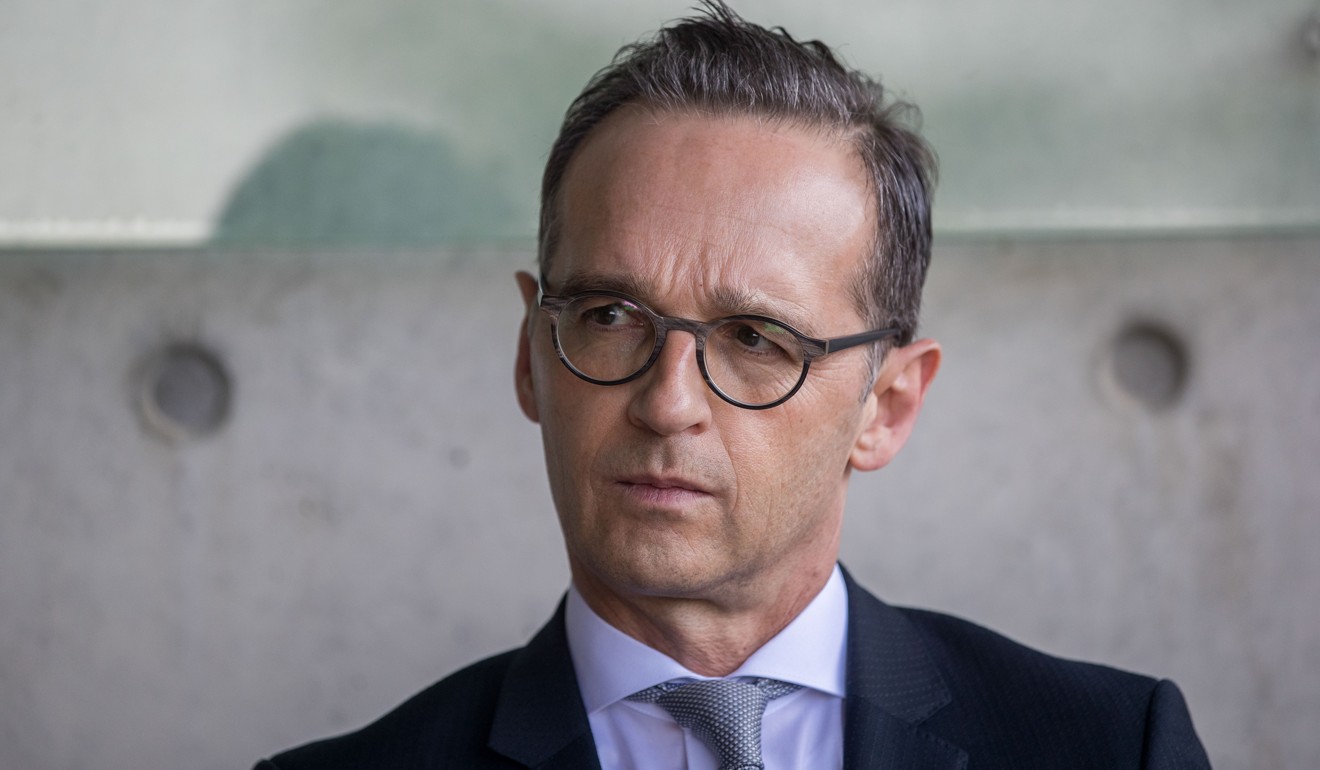
So far the US has expelled 60 Russians, the UK 23, and Ukraine 13. Germany, France, Poland and Canada have expelled four diplomats each, with Canada also turning down applications for three further Russian diplomatic staff.
The Czech Republic and Lithuania have have expelled three Russians each; Spain, Netherlands, Denmark Italy and Albania two each; and Sweden, Romania, Croatia, Finland, Estonia and Latvia one each. Latvia has also blacklisted one Russian representative of a Russian company.
Iceland also said that it had temporarily broken off high-level contacts with Russia and wouldn’t be sending any of its leaders to the soccer World Cup, in solidarity with Britain.
Iceland’s Foreign Ministry said the nerve-agent attack was a “grave violation of international law and threatens security and peace in Europe.”
However, Russia has received some support. Austria, declaring itself “a neutral country [that] sees itself as a bridge-builder between East and West”, declined to recall its own ambassador and said it wanted to keep communication open.
And more vociferous support came from Italy’s right wing, with Matteo Salvini, head of Italy’s conservative bloc of parties, tweeting that “Boycotting Russia, renewing sanctions and expelling diplomats does not resolve problems, it aggravates them.”
Salvini’s far-right ally, Giorgia Meloni, who heads the Brothers of Italy party, was also angered that the country had expelled two Russian diplomats..
“Unacceptable that a caretaker government has expelled two staffers at the Russian embassy,” Meloni tweeted, accusing the administration of being servile to foreign states.
“Luckily it will soon no longer be in a position to damage Italy’s national interests,” she added.
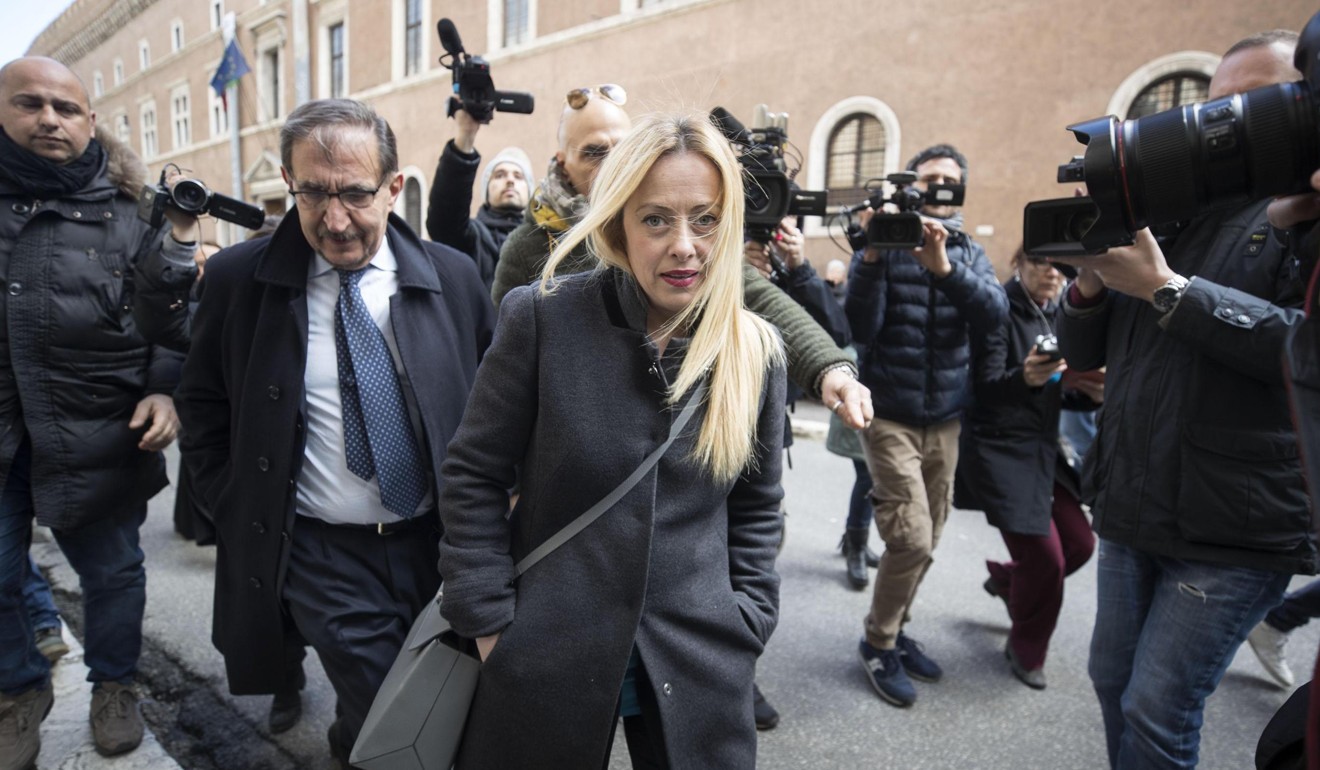
The US expulsions are the most aggressive US move against Russia under Trump, who has sought a closer personal relationship with President Vladimir Putin while at the same time introducing new sanctions against people and entities with ties to the Kremlin.
The United States takes this action ... in response to Russia’s use of a military-grade chemical weapon on the soil of the United Kingdom
“Today President Donald J. Trump ordered the expulsion of dozens of Russian intelligence officers from the United States and the closure of the Russian consulate in Seattle due to its proximity to one of our submarine bases and Boeing,” White House press secretary Sarah Huckabee Sanders said in a statement.
“The United States takes this action in conjunction with our Nato allies and partners around the world in response to Russia’s use of a military-grade chemical weapon on the soil of the United Kingdom, the latest in its ongoing pattern of destabilising activities around the world.”
The officials called the March 4 poisoning of Sergei Skripal and his daughter in Salisbury, England an attack on America’s closest ally and a reckless attempt to murder a British citizen on British soil.
They said there are more than 100 Russian intelligence agents under cover as diplomats in the US and described the number as unacceptable.
The 60 people expelled from the US include 48 attached to the Russian embassy and 12 at the country’s mission to the United Nations. They have seven days to leave the country, the officials said.
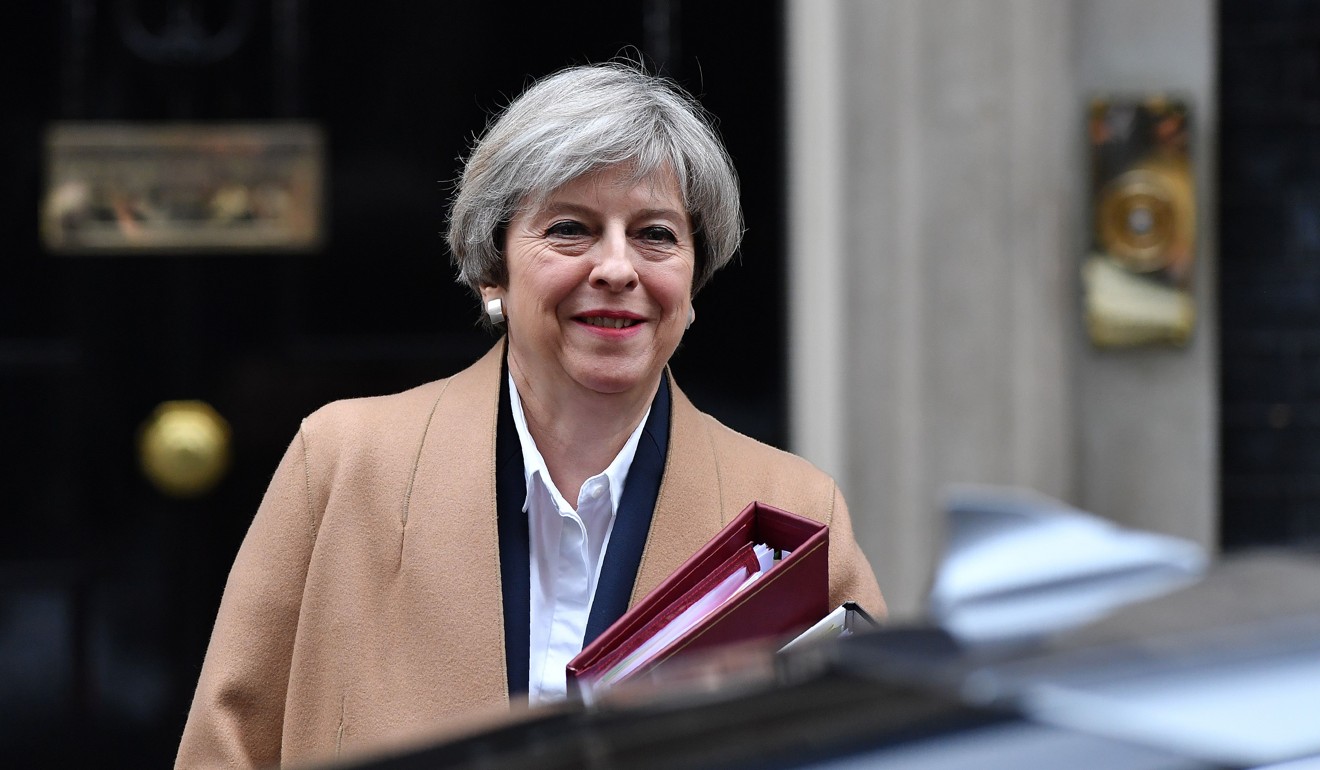
Putin’s government previously ordered 23 British diplomats out of Russia over what it called the “unsubstantiated accusations” that led to 23 Russian diplomats being sent out of the UK, and the Kremlin on Monday said it would act reciprocally if Trump expels officials.
Last week EU leaders declared in a statement that it was “highly likely” there was “no plausible alternative explanation” other than Russia being to blame.
While the UK and EU also recalled their ambassadors from Russia in response to the attack, the US has no plans to withdraw diplomats from the country, the officials said.
US policy toward Russia has grown more aggressive in recent months, but some Trump critics say he’s been slow to respond to Putin’s provocations.
Some have drawn a connection to special counsel Robert Mueller’s investigation of possible collusion between Trump’s 2016 campaign and the Russian government, as well as Trump’s past business relationships with Russian figures.
Trump faced criticism last week for calling Putin to congratulate him on his re-election, a vote observers said was marred by irregularities. After the call, Trump said he hoped to meet with Putin in the “not-too-distant future.”
“The United States stands ready to cooperate to build a better relationship with Russia, but this can only happen with a change in the Russian government’s behaviour,” Sanders said in her statement.
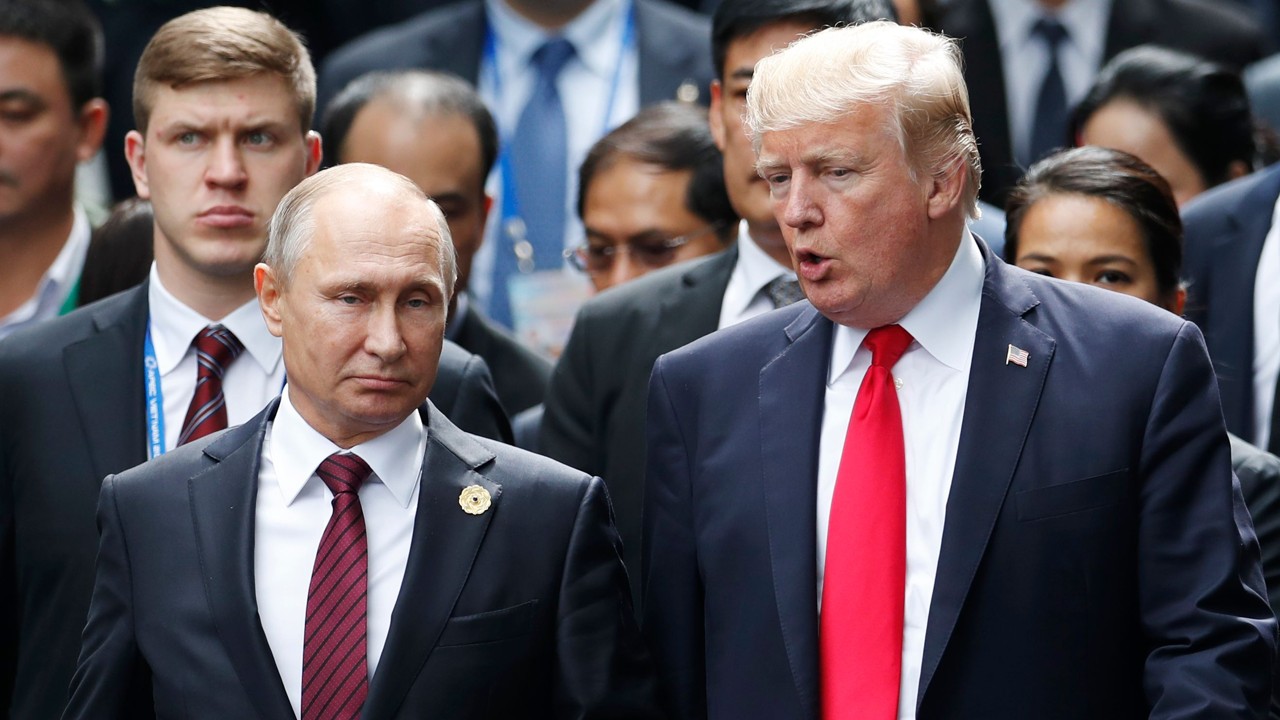
It is common for countries to station intelligence agents overseas under cover as diplomats, whose presence at embassies is accepted with a wink and a nod by their host nations.
The Obama administration expelled 35 Russian diplomats and shut down two embassy compounds that it said were used for “intelligence-related purposes” in December 2016 in response to alleged Kremlin hacking of the presidential elections Trump won.
Putin held back from an immediate response, a decision praised as “very smart” by Trump, who’d campaigned on a pledge of improved relations with the Kremlin leader.
But after legislators passed a law last July that prevented Trump from easing sanctions without congressional approval, Putin ordered the US to cut staff at its diplomatic missions in Russia by 755, or nearly two-thirds, by September 1, to create parity with Russian embassy officials in the US.



